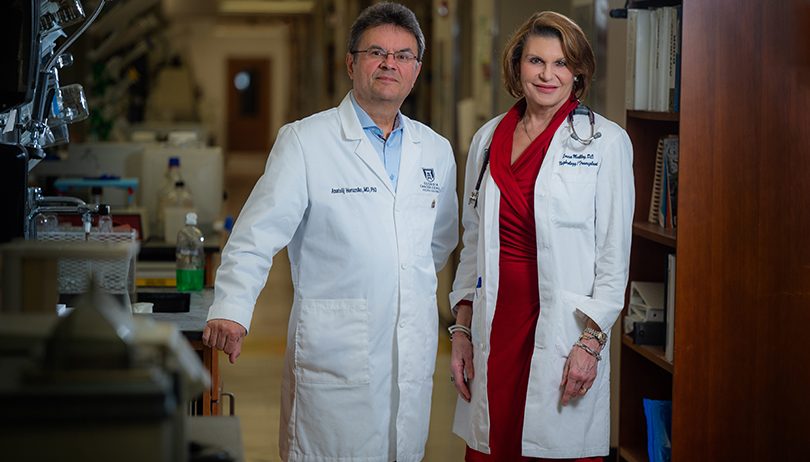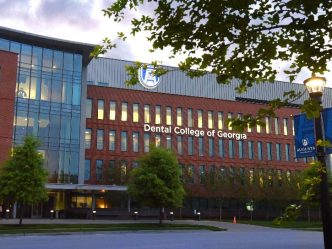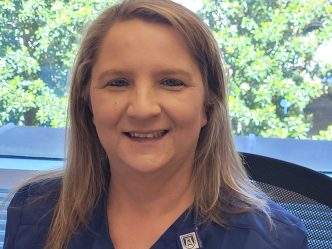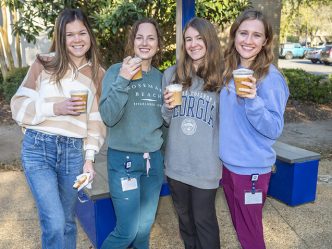A $1 million grant from the Carlos and Marguerite Mason Trust is helping support the research of physician-scientists at the Medical College of Georgia at Augusta University.
Co-investigators Anatolij Horuzsko, MD, PhD, immunologist in the Georgia Cancer Center and Department of Medicine, and Laura Mulloy, DO, chief of the MCG Division of Nephrology, are using a humanized mouse model to help determine the best way to combat organ rejection following kidney transplant.
Chronic rejection is the most common reason kidney transplants fail. Today’s long list of approaches for detecting rejection includes examining levels of creatinine, a waste product normally eliminated in the urine. High levels in the blood and/or low levels in the urine suggest the kidney is not functioning optimally. Creatinine levels also are regularly evaluated in the blood of patients who still have their own kidneys as a measure of their health.
However, by the time creatinine levels become a concern, the transplanted kidney may already be compromised, notes Horuzsko, principal investigator. A biopsy of the kidney to look for damage remains another gold standard for detecting rejection, but the invasive test has its own complications that may harm the kidney.
Noninvasive, predictive donor-specific biomarkers are more desirable, according to the researchers, whose goal is to identify the presence of immune cells early enough to modify the immunosuppressant medications before the cells can attack the new organ or cause any damage. The humanized mouse model Horuzsko developed has the immune system of a specific transplant recipient, which can be exposed to blood of different potential living donors to see if it is a good immunologic match, and he has evidence it also can signify trouble ahead.
Read more about this MCG study in Jagwire.
The Georgia-based Mason Trust, which works to improve the process of organ transplantation for needy Georgia residents throughout the state, has given more than $16 million to MCG and Augusta University Health over the years to enhance transplant research, education and patient care.
 Augusta University
Augusta University




